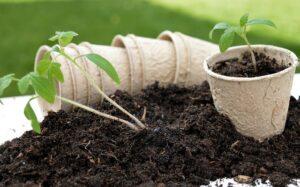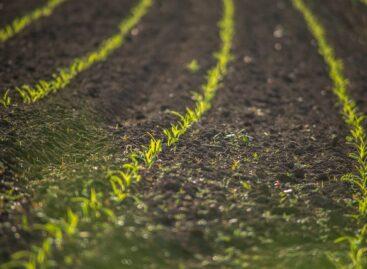Hungary was also represented at the Italian MACFRUT event
MACFRUT is an important international event of the fruit-vegetable-spice sector, which took place for the 40th time this year in Rimini, Italy, between May 3rd and 5th. At the event, the specialty area of fruit and grapes, as well as breed breeding and propagation, were featured as special sections.

(Photo: Pixabay)
Hungary was represented by Dr. Zsuzsanna Kovács, Dr. Zsuzsanna Békefi, senior scientific associate of the Fruit Growing Research Center of the MATE Institute of Horticulture, in her presentation presenting the results of our cherry breeding. The Hungarian-related moment of the event was also that the head of the cherry breeding program of the Catholic University of Chile highlighted the professional help they received for their work from their research colleagues in Érd and Budatetény.
The latest developments in varietal innovation for several fruit species (apples, cherries, strawberries, kiwi) and in table grape culture were presented at the meeting
Breeding and variety innovation organizations of several countries reported on their work. The traditional breeding methods are already supplemented with the most modern scientific results (molecular markers, embryo rescue, gene editing), thus shortening the time needed to create new breeds. In addition, the role of international, global networks was given a lot of emphasis, both in breeding and in research collaborations and in the use of the results of breed innovation.
The emphases of breed breeding are changing, and this could be felt in all sections of the event
Quality properties important to consumers are listed first: taste-aroma, consistency, consumption-enjoyment value cannot be pushed into the background alongside the parameters that determine the appearance or even the shelf life of the varieties. The evaluation criteria of the variety candidates include the health-protecting substances found in the fruits, e.g. amount of antioxidants and flavonoids. In addition to these, the breeders must also take into account the aspects that are important for growers and ensure economical cultivation: high, balanced productivity from year to year, the growth characteristics of the varieties, the habitus of the trees should enable the development of intensive forms of cultivation, or cultivation with less labor input . The presenters emphasized that the post-harvest properties have become more valuable in the global market, and the evaluation of fruit quality is supplemented by the evaluation after the storage and transportation period. For example, in the Chilean cherry breeding programs, fruit quality is evaluated after 30 days of cold storage.
Two aspects that are increasingly important these days must be highlighted
In the face of changing and increasingly extreme environmental effects, varieties are expected to have good stress tolerance and adaptability, for example, less need for irrigation, better drought tolerance, or even “rain resistance”: the fruits that are close to ripening should withstand it and not be susceptible to cracking. The other condition is resistance, because consumers want quality and safe fruit, so pathogen resistance has become one of the most important criteria in the development of practically all species. Such fruits can be grown with significantly less chemical plant protection. For example, almost all apple varieties from new breeding programs are resistant or tolerant to scab and powdery mildew.
Breeders’ rights, the protection of varieties, their controlled reproduction and cultivation were also important topics at the event.
The operation of the demanding propagation system based on stock plantations is also an unavoidable area. From what was said at MACFRUT, the need for continuous development could be felt: since due to climate change and globalization, the plant health challenges in the production of propagating material are also increasing, it is therefore necessary to continuously improve the propagation and control protocols. The voluntary quality assurance system related to the certification of propagating material, developed under the coordination of the interprofessional organization representing Italian fruit growers, breeders and propagating enterprises (CIVI Italy), and introduced at the national legislative level in 2022, was also presented at the meeting. This is primarily the case of the highest plant health risk, the so-called for epidemic pathogens, it means more strictly controlled technology and greater testing intensity than the EU requirements in order to produce planting materials of high biological value.
Nébih
Related news
CBAM causes market disruption
🎧 Hallgasd a cikket: Lejátszás Szünet Folytatás Leállítás Nyelv: Auto…
Read more >









